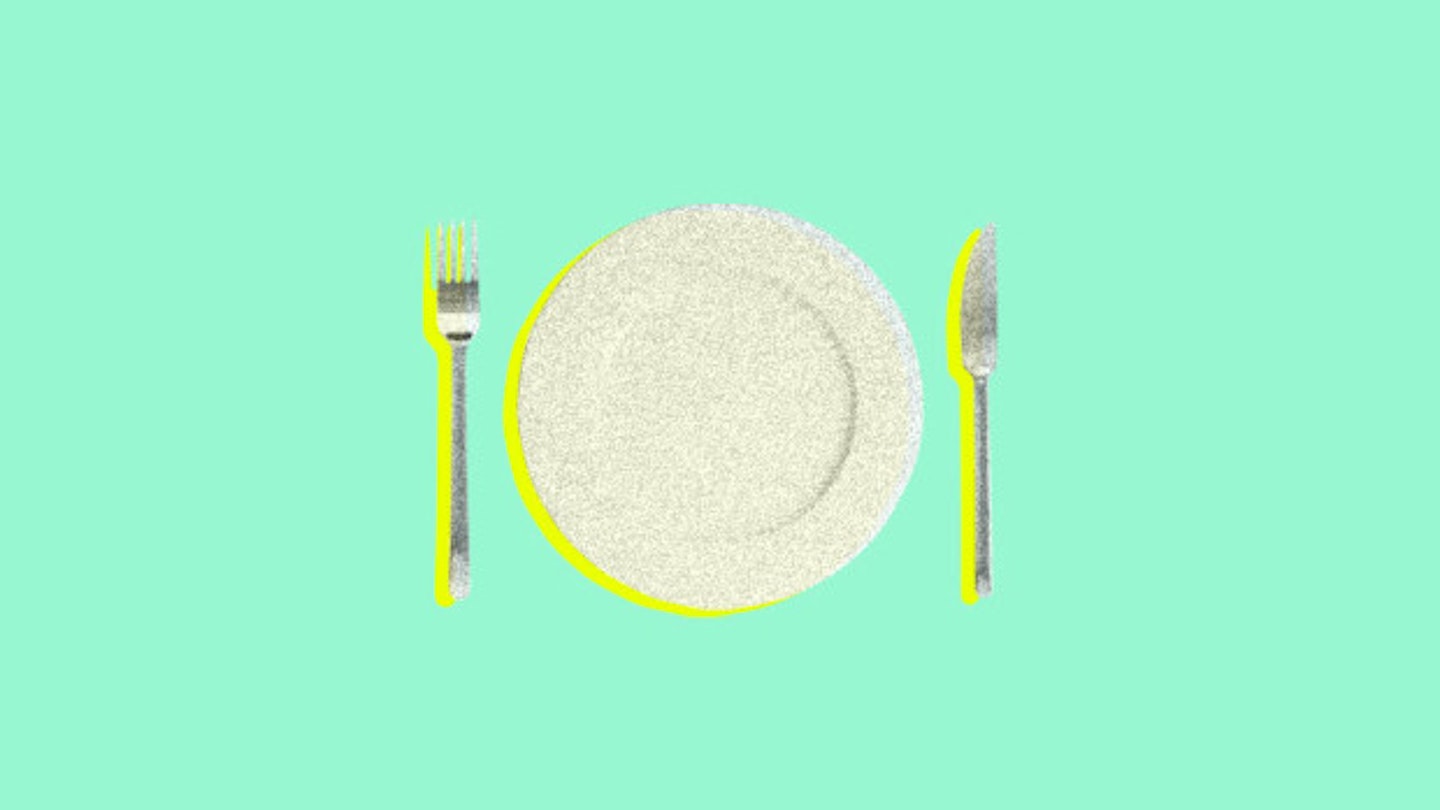When a tree falls in the forest and no-one is around to hear it, does it make a sound? And if a tree in the forest loses weight, is it really skinny unless all the other trees rattle their branches and say, ‘You look so great without all the extra bark!’ or ‘Real trees have LEAVES!’ or ‘You’re so twiggy, I’m jealous!’ or even ‘Have you thought about seeing a tree surgeon?’
Many years ago, I was the proverbial tree. I needed witnesses. When I had anorexia, I was driven by two, conflicting things. An urge to disappear, and a desire for as many people as possible to notice I was disappearing.
I was sane enough to know that my relationship with my reflection had broken down entirely, so I was relying on feedback from other people to confirm that living on a weekly bowl of watered down Readybrek was definitely making me thin.
So when my form tutor, a naturally slender lady, pulled me aside and said she was seriously concerned about the amount of weight I was losing and the speed at which I was losing it, my brain went, ‘Wa-hey! Nice one, Daisy! Double or quits? We could probably get it down to a bowl a fortnight, yeah?’ If Miss Smith thought I was skinny, I must have been super skinny!
Which is why I wasn’t surprised to read that a new Rutgers University study on anorexia has found that positive emotions play as much of a part in fuelling the illness as negative ones do. The participants felt ‘emotionally positive’ when they lost weight and when their weight loss was observed, owing to the ‘sense of pride that was triggered when they were able to meet or exceed their weight loss goals.’
In my experience, anorexia is the illness of overachievers. The sufferers love results. I went to a fiercely academic single-sex school which gave it the perfect conditions to flourish. It was to eating disorders what a warm, damp bathroom is to a mouldering shower curtain.
A stock photography search for anorexia will bring up hundreds and thousands of weepy looking women staring sadly into the distance, sometimes at an apple. But anorexia doesn’t work like that. If it made all the sufferers miserable and depressed, they wouldn’t bother.
At times, it feels really, really great. This is why it’s so fucking dangerous. Not eating becomes addictive, especially the sensation of ketosis, the metabolic state which your body falls into when it’s fasting. Ketosis makes you feel a little dizzy, a little distracted, but weirdly focused – essentially, trying to lose weight induces the sensation of weightlessness. I never felt like one of the sad girls with their uneaten apples. At times, anorexia turned me into an astronaut.
As a former sufferer, I think we would make great strides in the way we dealt with anorexia if we treat it like other addictions. ‘Eating disorders are complex mental illnesses,’ says Beat’s chief executive Susan Ringwood.
‘We know that people with anorexia can experience a mixture of pride and shame. Having a strong drive for perfectionism, a highly competitive nature and a need for control can be risk factors for developing the condition, and striving to be the best, most perfect anorexic can be fatal. They can feel pride in being able to control and master their appetites, when most other people are unable to, and shame at never being able to be perfect enough.’
For me, the only way out was to discover my other talents in other areas. If telling me I was good at getting thin made my eating disorder worse, telling me I was good at writing stories, or that I ought to take part in the school musical eventually helped me get better.
But in today’s environment of Twitter, Facebook and/or PerezHilton.com – where we are surrounded by the ruthless, relentless critique of women’s figures and faces – it must be even harder to find that outlet. So perhaps the best way to limit the damage that eating disorders cause is to stop commenting on people’s bodies, whether the intent is positive or negative, and whether you’re addressing a friend, celebrity or stranger.
At times, nothing tastes as good as a dangerous obsession feels. A well-intentioned comment could be giving that obsession fatal fuel. If you’re worried about someone’s weight loss, focusing on it might be the worst thing you can do.
Anyone concerned about an eating disorder should contact their GP in the first instance. Visit b-eat.co.uk for help and support.
Follow Daisy on Twitter @NotRollerGirl
This article originally appeared on The Debrief.
